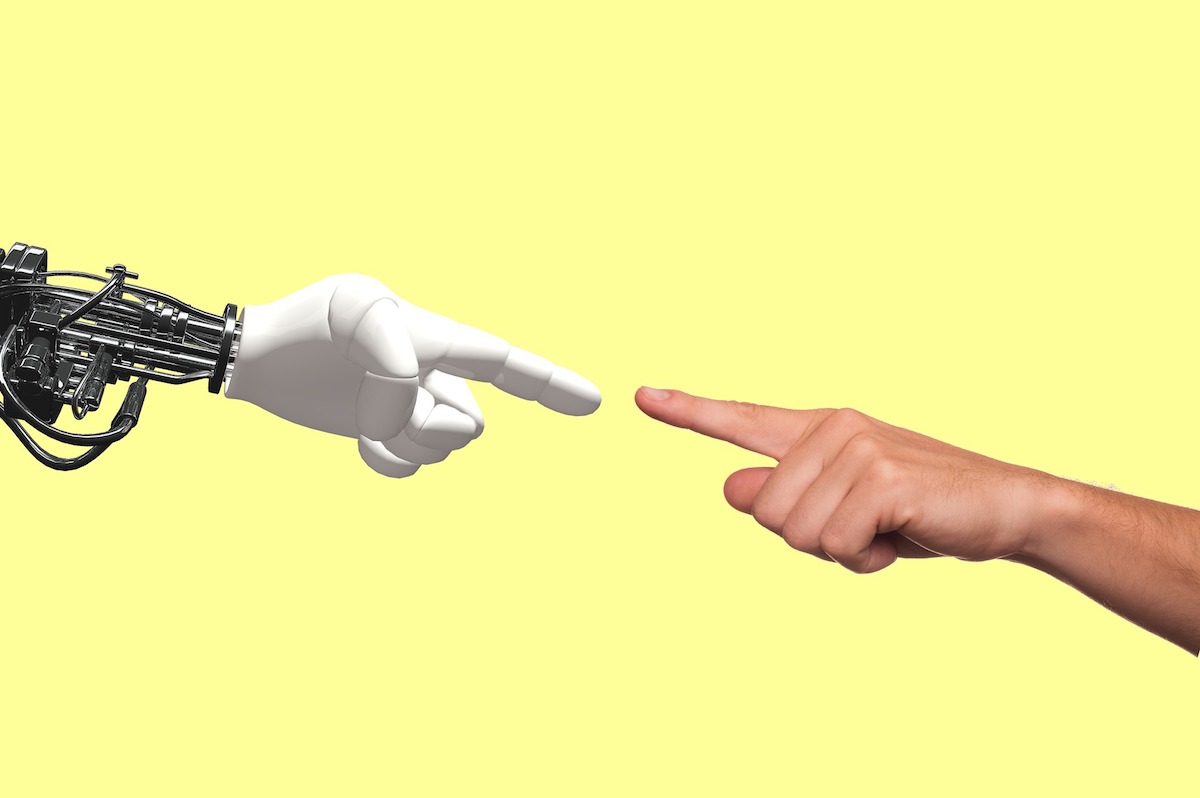As technology continues to dominate all aspects of our life, there is a new growing concern.
The age of automation.
Having been a software developer for a good number of years, I am well aware of the power of technology automation.
If there is one thing a computer continues to excel at, it’s the ability to cheerfully repeat a task at light speed, all without the need for anyone watching it.
Recently, I read an article about an investigative journalist who went undercover at the Foxconn manufacturing facility in Taiwan. Foxconn employs MILLIONS of workers from Taiwan’s labor force to assemble electronic components and produce one of the world’s most popular products, Apple’s iPhone.
The investigative journalist signed up to be a typical assembly line worker. His one simple task was to screw down a particular screw in the iPhone innards, for 10-14 hours a day. Other assembly line workers would perform similar single tasks all day long.
No one person ever assembled a complete iPhone from scratch. It was the combined efforts of a human assembly line, all working in tandem, to create the final product.
It’s not exactly the most pleasant work for a person, and you’re sitting for long periods of time doing mind-numbing and repetitive work, day in and day out. But for many people, it’s their only avenue to earn any sort of significant income for themselves and their families.
But technology continues to advance at such a fast pace that these kinds of jobs are in the most danger of being replaced by technology automation.
Foxconn even publicly admitted their goal is to automate human labor that involves these kinds of repetitious tasks with robots. Any sort of human manual task that is repeatable is a prime candidate for automation.
In theory, you could replace every single human worker in an electronics assembly factory by robots and computers.
And anyone who thinks their own job could never be replaced by automation either through software or robotics is deluding themselves.
I used to work for a dot-com company back during the first internet bubble that specialized in online banking.
This was around the time when doing things on the internet was still in its early infancy. Many people, including myself, still paid for things like monthly utility bills by US postal mail.
Our online product allowed people to pay their bills electronically via our online banking product/service. Through our product, many banks and financial institutions allowed their customers to basically do ALL their online banking from the comfort of their own homes.
All they needed was an internet connection and a decently powered computer system.
It quickly caught on with many banks for two primary reasons.
1. It added yet another level of convenience for their banking customers.
2. It could eliminate the need for HUMAN bank tellers and employees
Why would a bank continue to employ human employees like bank tellers, when they could use our software to allow their customers to use their banking services from anywhere?
Remember what I said about the power of computers. They excel at doing repetitious tasks at a phenomenal, superhuman speed.
Every bank uses a system of computers to hold their financial data. Any sort of bank transaction is merely a computer command or set of commands that need to be executed for that banking system… pulling up the balance of someone’s checking account, making an ATM withdrawal, performing a transfer between banks, etc.
A human bank teller is merely acting as the go-between, between the customer walking into the bank branch, and the back-end banking system where the customer’s financial data is stored. And all they are really doing is executing a set of computer commands to access that backend banking system.
From a technological standpoint, there is really no TECHNICAL reason a bank’s computer system needs them.
And from a financial standpoint, it’s an opportunity for the banking corporation to eliminate a big portion of their expenses, which is the cost of human labor.
The only reason we still have human bank tellers is many customers still like to have a “human touch”… a lot of us still PREFER to interact with people, to handle our banking needs.
The human difference
Humans still offer something computers and automation can’t offer, which is the human touch.
It’s the smiling person who greets you when you walk in and can listen to your needs when there is some sort of unique banking request or situation you need straightened out.
Computers still cannot think for themselves or “think outside the box”, so to speak. They can only execute predefined commands and logic and anything that can’t be properly understood is forever left unsolved.
But artificial intelligence technology continues to move forward. We have things like voice-activated computer assistants like Siri for the iPhone and the Alexa voice service, that act like little digital butlers, reminding you of your upcoming daily appointments and helping you dial up your personal contacts for you.
How long will it take before we have real-life HAL-9000-like digital voice systems that feel like you’re interacting with a real human? I’m positive it’s well within our lifetime.
Think about your grocery shopping. A grocery checker’s job is to scan the items from your shopping cart into their store’s digital inventory system, so it can tally up your items and handle your payment.
Many modern stores already have automated kiosks where you can scan your own items and pay for your items without the need for a real live person.
But automation didn’t just stop there. We’re already hearing about automated drone delivery where you don’t even have to DRIVE to the supermarket to get your groceries.
Every step of a typical trip to the grocery store can be completely automated with the combination of hardware and software.
We are well into the age of automated vehicles. The trucking industry is another ripe candidate for automation. It won’t be much longer before we will have freight trucks and big rigs that can autonomously drive themselves to their destinations.
What will automation mean for the human workforce?
I’m in the middle of a new project that is basically automating the job of a person who was responsible for installing one of our company’s core products onto our customer’s computer system.
In the early phase of the project, our software team set up a meeting with the installer to observe a typical installation process.
It was basically a set of predefined steps to check a work order and look up various external computer systems to verify that the work order looked correct and the target computer system was ready for a software installation.
When we had a clear understanding of the person’s install process, we concluded that every single step of the person’s job could be easily and completely automated by software.
It’s the new reality of the 21st century. In fact, I think we’ve barely begun scratching the surface of what technology and automation will eventually do.
The unfortunate consequence of this automation is the elimination of human labor.
So what can be done about it?
We can’t stop the progress of technology. It’s moving along like a freight train and there will be nothing that can stop it.
You can look for the telltale signs of automation. If your typical day is a set of repetitive tasks that don’t require much in the way of analysis and cognitive thinking, it’s, unfortunately, going to be a target for automation.
Jobs that require thinking “outside the box” are the kinds of jobs that will be most insulated from computers and automation. Yes, artificial intelligence continues to move forward, but machines are still a long way away from being able to think for themselves like humans.
The robot overlords aren’t here yet, but it never hurts to continue investing in skills and knowledge that computers and machines cannot automate.
In fact, I’d go so far as to sa — <<< MESSAGE REDACTED …
PRIORITY ONE
HUMAN TRANSMISSION DETECTED
SPECIAL ORDER 937 EMERGENCY OVERRIDE
END HUMAN TRANSMISSION >>>




